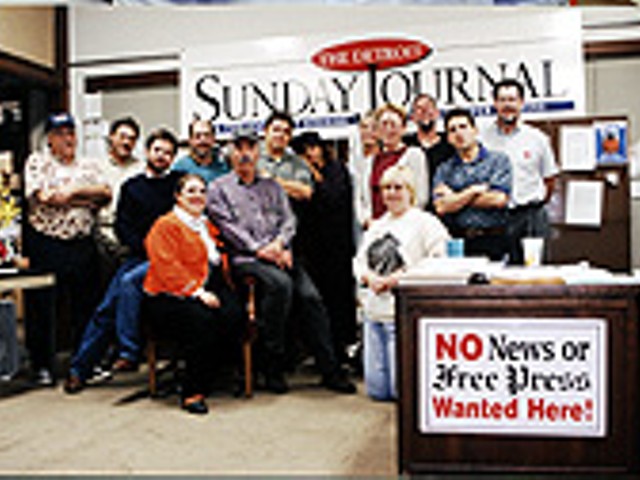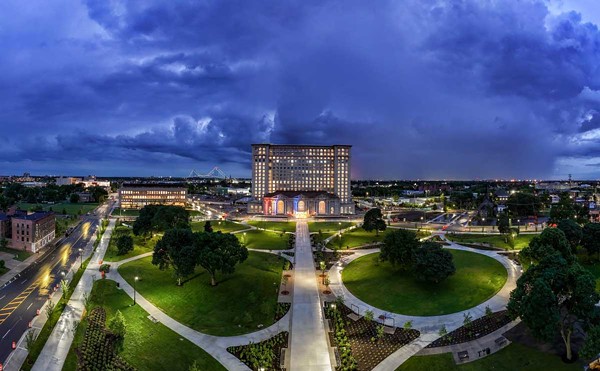Once a year you can find him backstage at Chene Park, managing the "million details flying at once" during Detroit’s premier world music event: culture and language barriers, artist egos, manager demands, roadies with technical problems, politicians and bigwigs who drop by in need of glad-handing.
"He’s just very, very even and cool all the time," says Ismael Ahmed’s longtime friend and associate Kim Hunter. What could be heated exchanges get resolved in a tone of voice that suggests "he’s talking to a long-lost cousin." Underlying that, says Hunter, is a basic respect: "People will forgive you – even if you don’t know the cultural norms – if they see you are trying to respect them."
For Ahmed, the annual Concert of Colors, sponsored by New Detroit, is both a major multicultural event and a metaphor for the coalition-building of good politics.
Consider his own story: Son of an Egyptian merchant marine sailor-turned-film distributor and a third-generation Lebanese-American mother, he grew up in southwest Detroit, southeast Dearborn and Brooklyn. He saw Africa with the merchant marine, Korea with the U.S. military, then came home to immerse himself in anti-Vietnam War, community and union work.
In the early 1970s he was among a dozen or so Dearborn activists "who felt that there was need for immigrants to get a fair shake."
The organization that grew out that need, Arab Community Center for Economic and Social Services (ACCESS), is now one of the state’s largest social service organizations; Ahmed is the executive director there and vice chair of the New Detroit Board of Trustees where he has been credited with broadening the involvement of ethnic groups and working to ease tensions between African-Americans and Arab-Americans.
His other affiliations have ranged from Jesse Jackson’s presidential bids to national Arab-American political groups to the Detroit NAACP and an interdenominational effort to feed the poor at Christmas. That’s not to mention an array of informal affiliations and his "World Mix" program on WDTR-FM.
For Ahmed, these efforts have common ends.
"Most people believe – and even I feel that sometimes – that everything is in the hands of the rich and powerful; it’s the corporations that decide everything, the mayors and governors, and we’re just going along," he says. "But when light gets shone on what people are doing culturally or in the community, you realize that we do have the power to change the world."





